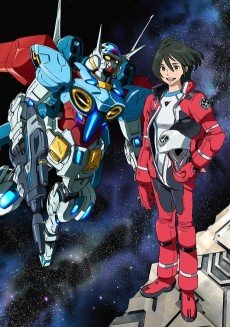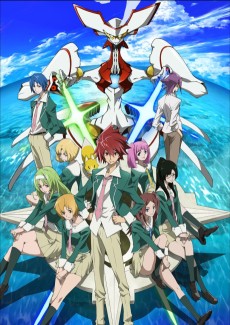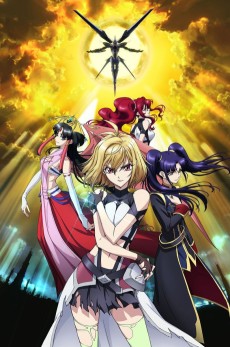KIDOU SENSHI GUNDAM GQUUUUUUX
STATUS
COMPLETE
EPISODES
12
RELEASE
June 25, 2025
LENGTH
25 min
DESCRIPTION
Amate Yuzuriha is a high-school student living peacefully in a space colony floating in outer space.
When she meets a war refugee named Nyaan, Amate is drawn into the illegal mobile suit dueling sport known as Clan Battle.
Under the entry name "Machu," she throws herself into fierce battle day after day, piloting the GQuuuuuuX. Then an unidentified Gundam mobile suit pursued by both the space force and the police appears before her, along with its pilot, a boy named Shuji.
Now their world is about to enter a new era.
(Source: Official Site)
Note: Prior to broadcasting, "Mobile Suit Gundam GQuuuuuuX -Beginning-" — a theatrical pre-screening of the first 3 and 8th episodes edited together— debuted in Japan on January 17, 2025 and in North America on February 28, 2025.
CAST

Amate Yuzuriha

Tomoyo Kurosawa

Nyaan

Yui Ishikawa

Shuji Itou

Shinba Tsuchiya

Char Aznable
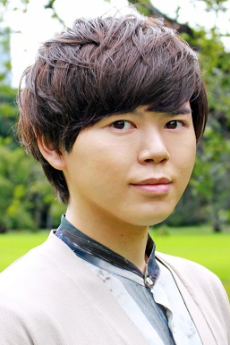
Yuuki Shin
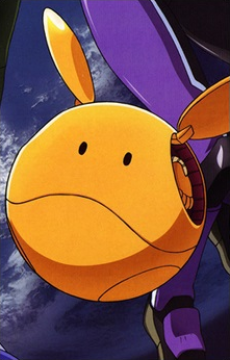
Haro
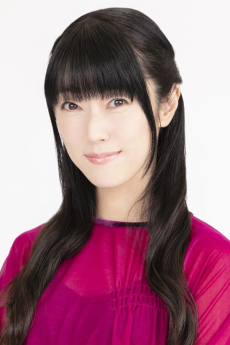
Rie Kugimiya
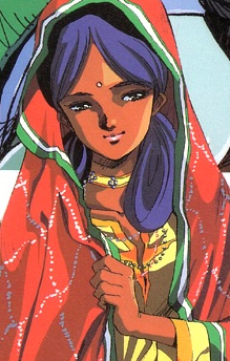
Lalah Sune

Hina Youmiya

Challia Bull
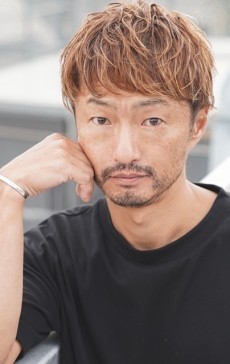
Shinji Kawada

Comoli Harcourt

Akane Fujita

Deux Murasame

Hisako Kanemoto

Kycilia Zabi

Kaori Nazuka
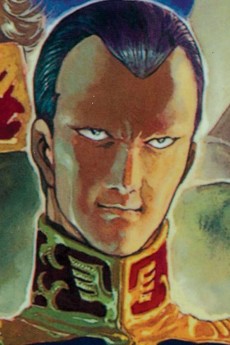
Gihren Zabi
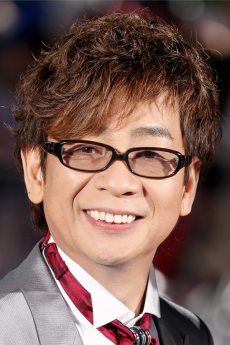
Kouichi Yamadera

Conch

Shiiko Sugai

Manami Hanawa

Xavier Olivette
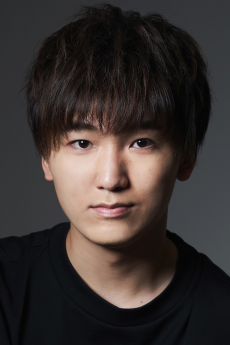
Seiichirou Yamashita
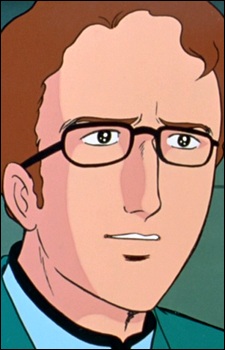
Cameron Bloom
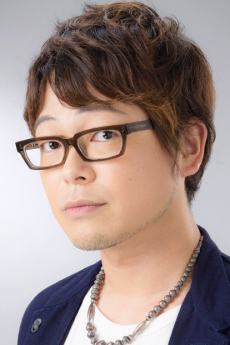
Kazuyuki Okitsu

Annqi

Mariya Ise

Gates Capa
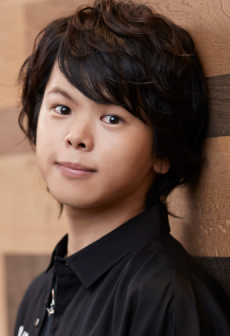
Ayumu Murase

Tamaki Yuzuriha

Rie Kugimiya
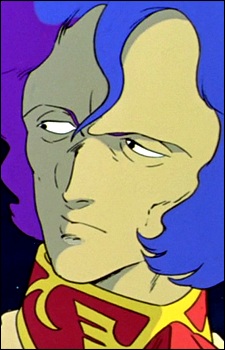
M'Quve
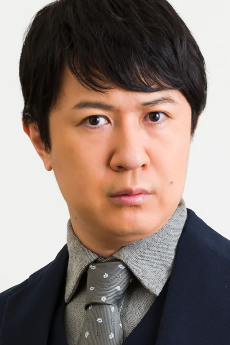
Tomokazu Sugita

Pomeranian
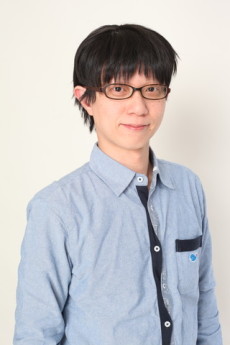
Kousuke Echigoya
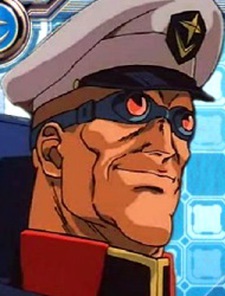
Bask Om

Hiroki Yasumoto

Tem Ray

Kousuke Echigoya

Slender
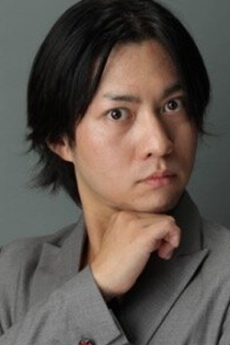
Takuya Inagaki

Miguel Serveto
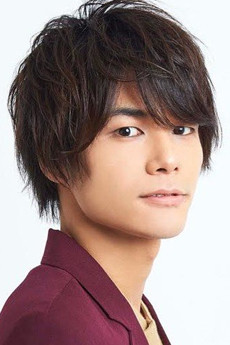
Taku Yashiro

Sepha

Risa Watanabe
EPISODES
Dubbed

Not available on crunchyroll
RELATED TO KIDOU SENSHI GUNDAM GQUUUUUUX
 ANIME DramaKidou Senshi Gundam
ANIME DramaKidou Senshi GundamREVIEWS

ZNote
70/100Tsurumaki’s self-fulfilling prophecy. We'll meet again someday.Continue on AniList(Video includes audio. Be sure to unmute) Gundam is a series that has a long history. I watched it as a child, and it has continued on. It’s been around a long time. However, the generation of fans has really been extended. We now have many young generations who have never even watched the first Gundam. I think the first Gundam is extremely interesting, so I really want the young people to watch it because I know they will find it interesting as well.
Thankfully, we have subscriptions where you can watch it anywhere, anytime. In the past, if a show was no longer on television, you could no longer watch it. I hope that the new generation could also watch the old Gundam as well. If that is materialized, I would be really happy.~Tsurumaki Kazuya, asked about what he hopes Mobile Suit Gundam: GQuuuuuuX’s legacy would be within the franchise, excerpted from an interview with Isaiah Colbert, 29 April 2025.
Tsurumaki’s remark is as insightful as it is low-key hilarious. If we imagine GQuuuuuuX as a kind of giant trolling to get people to watch the original Mobile Suit Gundam (either in its original TV format or the truncated trilogy films that arguably saved the franchise), then calling this a failure is a lot harder to sell. I cannot speak on behalf of everyone, but I did happen to notice an uptick in the number of times someone catalogued the original series in some form or another. I found myself talking about lore or characters in this franchise with people who had never expressed an interest in it beforehand, and found my own intrigue in it delightfully rekindled. To possibly an even greater extent than Sunrise / Bandai Namco’s own attempt to do so with The Witch from Mercury, interest in Gundam was earnestly considering the historical object that it is, a thing that existed back in the late 1970s and has endured throughout all its sub-universes and timelines, directors, and Tomino Yoshiyuki depression. Lord knows that two others and I pestered someone in our groupwatch to “get on with” watching the trilogy films before our GQuuuuuuX sessions began—and he did, though it took a while!

(Challia Bull asks this question in reference to who is piloting the Red Gundam. In the context of Tsurumaki’s remarks, it’s an invitation to find out for yourself what Challia means by going back to the source) And through all of it, people like Tsurumaki latched onto Gundam as a thing to love. Earlier in the article, he mentions some of the conflicting images of Gundam that have cropped up, using his own production staff as a test sample. Everyone knew of and loved Gundam, but not for necessarily the same reasons. As for what those reasons are? Only they know, and we can only guess. Yet, it is precisely because of Gundam’s long lifespan that it even has the privilege to be viewed with this kind of plurality. The underlying themes of war, children, violence, and space as planes of existence for mankind’s uncertain future will always exist within the franchise, but they’ve likewise always been packaged in bizarre forms. Sometimes, those forms have been compelling. Sometimes, they’ve really sucked. Sometimes, they’ve been quirky. Point being, all of these are indicative of an attempt to make sense of what Gundam does and means. This was even true at the start, considering it was marketing and toy-selling that kept the franchise and any ideas within it from fading into obscurity.
So, what exactly did Tsurumaki and his fellow creatives do? GQuuuuuuX is true Gundam in the sense of its holding fast to emotional cores and throwing its characters into the deeper ends of the outer space swimming pool, where fighting against something seems to be the only way they know how to live or form connection of any sort. Caught within the quagmire of trying to survive economically or spiritually, Amate Yuzuriha and Nyaan find themselves thrust into underground battles in a post-One Year War time where Zeon won and life continued along that trajectory. Crashing through the manufactured skies of Side 6, a fabled Red Gundam intrudes itself into the lives of everyone involved, chased by the titular GQuuuuuuX. And Shuji, a zombie of a soul, seems to pathologically bond with the Gundam and inserts himself (like the songs do during battle) into the dynamic between Amate and Nyaan. A found family in the oddest sense, they’re people who recognize that they are attracted to one another but cannot necessarily articulate why. The piloting of the Red Gundam and the GQuuuuuuX is itself the articulation – impulsive, bombastic, and perhaps stupid. Home is the cockpit, because even if the chance is the tiniest bit remote, they at least have some kind of respite from the outer forces they cannot control. But with one another, or through one another? Maybe salvation is possible.
(Credit to Hisashi Mori. The insert songs are rather overcranked and do more than a little to take away from the battling sense that the series is engaging in.) Granted, that’s not to say that it does not have problems, even taking that into consideration. If GQuuuuuuX was to be analyzed like it were plain text on paper and divorced from just about everything else (which is a habit we must break), it would indeed appear that things kind of happen seemingly out of nowhere. How could the characterization appear to be so vague? Why even bother proposing some kind of multiverse / alt-timeline if you won’t give it more time? How could it rely so heavily on nostalgia key-jingling for its audience, as “hype” as those moments could be? How could it do this? For those who may long for the days of 50-episode Gundam sagas and the so-totally-straight-amirite interpretation of its characters or actions, GQuuuuuuX seems to run (and not just in the OP) afoul with reckless abandon. Maybe it would be nice if every single moment along the way had a clean explanation that could be found by pointing at a screenshot.
But what would that actually achieve? Not much, I don’t think. Reason being, the series is not trying to hit upon something that neatly maps onto a conventional narrative structure. With any franchise that has a long lifespan, there reaches a point of acceptance as a fan when you long to see things get a little weirder or get a little crazier, coherence to the narrative be damned. Dragon Ball DAIMA may not have done the idea of worldbuilding in its universe or “the lore” many favors, but it had a grasp on the inherent silliness of its setting and followed through, barely giving any concern to “canonicity.” Tsurumaki and his team have created something that exists in pure enthusiasm, something born from underlying love and affection, and that’s not easily mappable onto a story that we did not ourselves take part in creating in regards to writing or developing. But tonally? It’s there in every swooping camera shot, Amate or Nyaan getting mad, Shuji being the aloof dork wunderkind, or Kycilia wearing her mask and executing the people who hate her while she sits right there, watching it all unfold.
(Unknown credit. Amate and Nyaan find themselves consistently thrown into situations where they either must make rash decisions or clash with whatever impedes them from realizing what they want. It’s a flurry of emotionality that conveys its frustration vividly, even if at the cost of pacing or traditional narrative coherence) GQuuuuuuX as a piece of media is not to be analyzed in the typical way that we do with caring so deeply about plots, characters, or any of the other ways we exercise as media consumers / interpreters of media. This series pointedly does not exist in a vacuum; it exists entirely because of the original’s existence and the profound influence it had on Tsurumaki and everyone else who ever thought about its universe, dressed like Char for an anime convention (and hopefully didn’t think his “drop a meteor on it” philosophy was a good idea), or saw Fa running in the ED of their dreams. Is the series nostalgic? Unapologetically. Is it a mess? Unapologetically. Was it made with love? Unapologetically.
And I suspect Tomino would be okay with this.

(Tomino’s days are dwindling, and though he himself will die one day, Gundam will endure as long as unapologetic love for the material exists, however it manifests) When Tomino created ∀ Gundam, it was a declaration that all kinds of ideas about what Gundam was up to that point were accepted with his blessing. In keeping with that optimistic spirit, that show’s very existence was also a way of saying that, in a way, Gundam no longer belonged to him. In drawing upon the language of universal quantification for the show’s title (∀), he was likewise giving a blessing to those who sought to see what Gundam could do from then on. Tomino is in his 80s at the time of this writing; he has more years behind him than ahead of him. He cannot keep making Gundam forever, so it must be left in the hands of those who love the material so much that they would want to do something, anything, with it beyond token marketing.
That is, ultimately, what Tsurumaki and his team have done. Even if they have never themselves experienced war like those of the past, they love Gundam and what it means, and given the chance to take the keys from Sunrise / Bandai Namco, they allowed their juices to flow with a kind of freedom that many creatives wish they could be afforded. They knew this process, and the product that would result, would be an alienating one, but it’s a risk they took on with full knowledge of that. Gundam at its best has always taken risks, be they narrative or metatextual. And here now, I find myself more enthused than ever for what lies ahead. Like its many models, or debates over whether the Rick Dom or GM were stronger according to Tsurumaki’s interview, Gundam will continue into whatever bizarro version of itself it has in store.
Tomino's Gundam is not coming back in the strictest sense. It was forged during a time when increasingly-dying-out people were old enough to remember--or live in the aftershock of--Japan's most horrifying traumatic event. I highly doubt anyone would say that such an event needs to be experienced again just so another installment can be made that "has actual meaning for my fellow Newtypes." War is always a stone's throw away (and as such, war fiction will forever be in vogue), but there are other battles to be fought as time and its protagonists sprint forward. GQuuuuuuX is not like old Gundam, and that’s how it should be. Because, now in the year 2025, it makes the claim that, even in the midst of circumstances you cannot make heads or tails of, humanity's ability to cling to SOMETHING, or even perhaps anything, is the first step in taking your own future by the reins, even if that something is acknowledging your own malaise or frustration. Tsurumaki wanted to make people watch Gundam. He had that something, and he did something with it.
And if you ask me, that’s pretty dope.

Scheveningen
80/100An ambitious what-if story for the Gundam franchise with immensely interesting ideas held back by a lack of run timeContinue on AniListGundam GQuuuuuX is an ambitious alternate timeline narrative that expands upon the ideas and themes of the original Mobile Suit Gundam. While it has plenty of interesting things to say, combining more developed ideas from later works like Zeta Gundam with insight from almost half a century of re-examining the source material, it is also attempting to fit an immense number of ideas into a mere twelve episodes. Just covering the political complexities of Zeon winning the One Year War, with the unravelling hypocrisy around their ostensible ideology and the dysfunctional government of the Zabi family, could be an entire series unto itself. But in addition to that, GQuX also wants to explore ideas surrounding the Newtype condition, both in how it shapes individuals and their relationship as a group to the rest of society. Unfortunately, this overload has resulted in significantly rushed characterisation, with the more personal and emotional beats between the new cast feeling like they only have the outlines of their relationships and arcs present. All while the mechanical plot also feels like it lacks the time to full explore the intricacies of its moving parts and build up more tension before its climax. Nevertheless, GQuX still manages to squeeze out a surprising amount of depth in its run time by loading many of its scenes and dialogue with significant implications that can be inferred by those with knowledge of other Gundam shows. While intertextuality is necessary and arguably the entire point of its premise, it would understandably be alienating for first time viewers since the synopsis does not warn them nearly enough about this, all while the emotional arc of the new characters cannot fully compensate for it. This all leads to GQuX being more compelling for its developments on the ideas of the Gundam franchise rather than the new characters successfully asserting that this is their story. While what is presented right now is certainly polished with an immense potential, it is abundantly clear the story cannot be fully realised in only twelve episodes because of the sheer magnitude of its aims.
The concept of exploring the hypothetical scenario of Zeon winning the One Year War and its consequences is as old as the Gundam franchise itself. Some of these ideas have ranged from frivolous to unsavoury given what Zeon represents, but the premise itself does have its usefulness. Put succinctly, an outcome can only be as important or meaningful as the possible alternatives to it. The extent of insights gleaned from counterfactual thinking does have its limits in real academic fields, but in the case of fiction, these what-if scenarios can be written to essentially be just as “real” as the canonical timeline. This allows GQuX to make larger points without necessarily dedicating a significant amount of screen time to them, such as showing how Side 6 is effectively under Zeon’s boot. Refugees from other space colonies are treated as undesirables despite being fellow spacenoids, and the government of Side 6 is subject to Zeon’s intrusions due to the power imbalance rendering them little more than a satellite state. This alone makes a strong impression on the viewer beyond simply confirming the authoritarian nature of Zeon under the control of the Zabi Family. It also demonstrates the merely hypothetical point made in other media like Zeta Gundam, that spacenoids would be oppressed by either side of the conflict, be from a victorious Zeon or the Federation’s Titans. This then raises the question of what possibility there ever was for change, who or what is to blame for impeding it, and whether this is simply inherent to the political situation of humanity evolving into a spacefaring society. All of this does rely heavily on knowledge of the source material for it not to feel like mere set dressing, but it is hard to claim that these pieces of information were not added for a specific purpose. Either meant for some implicit comparison or to leverage the source material to create depth, like with how Nyaan is mentioned to be from Side 2 of all places. Yet the complexity of the setting is certainly not utilized to its full potential. The is never much time dedicate to exploring the politics of Side 6 or the experience of the refugee population despite both having direct connections that could reinforce the characterisation of the main cast.
This sheer lack of screen time also extends to examining the instability of the Zabi family and the power structures within Zeon. The idea of the Zabis falling into infighting once they lacked an external foe is compelling for anyone familiar with the One Year War since it was one of the obvious dangers of them winning. While the gist of the power struggle between Kycilia and Gihren is understandable, even to a viewer with only a rough memory of the source material, it is still incredibly ill defined beyond a mutual personal hatred and wanting power for the sake of it. That is certainly enough to spark a conflict, and speaks to the dangers of authoritarianism vesting power into only a few people with no other checks, but it does not give a good sense of what elements of the Zeon military or government are loyal to which faction and for what reasons. Eventually there is some semblance of clear battle lines being drawn with how Kycilia’s forces extensively use Newtypes like some kind of elite wunderwaffe while Gihren’s conventional forces still dismisses their existence. But there is simply not enough built up surrounding this conflict to have a good sense of tension or escalation before the climax of the plot. In fact, it takes a remarkably long time for the show to outright state something as important as Degwin having died prior to the start of the main narrative. Part of this is due to Chalia Bull being the main Zeon perspective the show follows, who is loyal to Char’s ideals and a sort of third pole in the intra-Zeon conflict. While this gives the viewer extensive insight to Chalia as a character, at least relative to others in the series, it leaves the wider tension within Zeon feeling formless. There is some tension or dread derived from the wider conflict being partially unknown, but it cannot compare misses the opportunity to buttress the show’s other political themes by exploring more of Gihren and Kycilia, or at least Chalia and the average Zeon soldier’s perception of them. It might have been better to take some time to better spell out who the two of them are and what the political status quo is, even if it did have to retread some information from the source material like how the Zabis hijacked the Zeon independence movement for their own gains.
Instead, a significant amount of narrative time was spent covering this timeline’s point of divergence during the One Year War. Granted, all of this is tremendously entertaining for an established fan with all the mech combat and visuals of the entire series being highly polished. But it does start to feel overindulgent considering how the entire second episode was dedicated solely to this objective. It raises the question of whether this time could have been better used considering the rest of the show relies so heavily on knowledge of the source material that it is not particularly effective means to catch up first time viewers. Some of the details in how the story diverges from 0079 and its immense focus on Char’s role in the war are load bearing considering how much his legacy weighs upon the rest of the story in more ways than one, yet there is limited utility beyond that. GQuX does delve somewhat into the idea of MAV tactics, but it is apparent that this is mostly a narrative device to help better frame the mobile suit combat since it is essentially an analogue for tactics and cooperation with a wingman. This has always been present in Gundam, and has always been somewhat necessary as part of choreographing a fight with multiple mobile suits, but it is simply the firs time that so much attention has been drawn to it. While more effort could have been made to sustain the focus on this concept as the series stretches on, the fixation of some fans on this being a lynchpin narrative idea perhaps speaks more about their preoccupation with the military minutia and technicalities. All this does at least aid in characterising Chalia Bull, and when combined with scenes later in the show gives him an extensive amount of depth in showing his ideals, contradictions, and change of heart when it comes to the Zeon cause. This reaches a point where he could be considered the most fully realised character in the series, even when compared to Machuu.
This presents something of a problem since the show is ostensibly meant to be primarily Machuu’s story, with her, Nyaan and Shuji forming the core trio that emotionally anchors the narrative. The framework for their arcs and relationships are apparent enough if a viewer goes deliberately searching for it, with how Nyaan’s status as a desperate refugee and Machuu’s listless rebelliousness are major elements to their characters. Yet this is never explored and only demonstrated indirectly, which while praiseworthy as effective writing, can only go so far before there simply needs to be a more overt examination to achieve depth or emotional resonance. The scenes between Machuu and Nyaan have their charms thanks to a strong performance by their voice actors and the animation team, but they are rarely used to bring out more of their characters. In particular, it is disappointing that Nyaan being a refugee is used almost exclusively to further the plot instead of it creating an emotional conflict, either within herself or with others. Conversely, Machuu’s sheltered upbringing is never made into a point of envy or even distance between her and Nyaan despite it being some obvious grounds for exploring what is essentially class differences between spacenoids and the consequences of war. There is some effective characterisation that highlights Machuu’s desire for freedom and to chart her own path, but it reaches a point of appearing almost petulant with how the show can only afford to have brief scenes of it that preclude any detailed exploration of her feelings. It is still a decent set up for Machuu being in over her head, but it does not effectively bridge the wider political narrative with the more personal story between the teenaged characters, perhaps through something like Machuu’s mother insisting that life is difficult outside of Side 6 which could then give us some insight into Machuu’s naivety or rebelliousness. All this ends up leaving the character’s traits and arcs to be more implicit with little being done to highlight them to the viewer. While this could be argued as subtle storytelling, the issue is that indirect means of characterisation simply require more time to build up then something overt. Which then presents a major problem when these underemphasised character elements are used as the basis for actions that propel the plot forward, like with Machuu’s rebelliousness or Nyaan’s isolation and desperation. The lack of emphasis on their characters and how it affects their agency leave events just seeming to overtake the cast with little emotional payoff.
What we are left with is the core of the connection and conflict between Machuu and Nyaan being founded upon their responses to the Newtype experience, and Shuji effectively being used more as a symbol or plot device for this than being his own character. While it does serve to provide compelling insight into existing as a Newtype, with this heightened connection also potentially being a curse in how overwhelming and dependent it can make an individual feel, it is hard to say it is compelling on a character level with how much it focuses on the external stimulus of “Kira-Kira”. The idea of “Kira-Kira” itself, being a sort of representation of how Newtypes perceive the universe like some higher reality that can connect them across time and space, is generally compelling and effective. But the issue is that this becomes the overriding focus of Machuu and Nyaan’s character actions which leaves everything else by the wayside, likely as a result of simply lacking time to dedicate to other character elements. This does appropriately coincide with the show’s pivot in the latter half of its season that effectively escalates its stakes, executing a mid-season climax that irreversible shatters the status quo of playing around at Clan Battles and being delinquent teenagers. While it does not suffer the issue some other Gundam shows have of still trying to return from paradigm shifting moments for more lighthearted episodes, it cannot help but feel like GQuX simply needed more time to build up towards this. The pacing and position of this pivot within the structure of a twelve episode series is by all measures effectively placed. However, the sheer magnitude of ideas being crammed into it leaves it feeling rushed since there has been an inadequate amount of foreshadowing to build up tension for so many moving parts. In particular, with how pivotal the ideas around the “Kira-Kira” becomes, it would have been better if there were more hints to it not merely being a symbol. Perhaps through some concrete discussion between the characters on its possible nature, or even them being granted some premonition or insight that would demonstrate it is clearly beyond the classic Newtype intuition viewers are familiar with.
Beyond that, discussing much of the second half of the season or the climax without giving anything away is relatively difficult. To use more vague terms, the pay off for all these ideas coming together is spectacular when viewed as a sci-fi fan who is interested primarily in seeing high concepts being executed. Though less so from the standpoint of it being an emotionally compelling culmination the various character arcs. There are interpersonal conflicts that underpin the wider climax, but relative to the magnitude of events transpiring in the plot, they simply lack an adequate emotional build up or investment to be particularly compelling, at least for the new characters introduced. Legacy characters that return to the narrative do have an tremendous emotional punch to them, but that is due to GQuX essentially leveraging their extensive preexisting characterisation and story, which alleviates a lot of the set-up work required within the show itself. While the eventual trajectory of the show does spark tremendous interest on the conceptual level and effectively serves the larger themes at play, it does also leave the political angle of the story underserved since it essentially turns to focus on its Newtype ideas. But perhaps that is par for the course with the climax of a lot of Gundam shows. To be certain, there are interesting metatextual questions about how the Newtypes fit into the Gundam narrative, raising the idea of if they are simply a chosen few that can influence the story while everyone else has their agency negated or significantly diminished and what that means for a world with them. Yet, as emblematic of the show’s pacing thus far, these are more interesting as abstract concepts rather than being seamlessly tied to a particular characters' personal arcs. There is still a strong emotional punch to GQuX in its finale, but it relies heavily on its connection to the source material and viewers being both familiar and invested in the legacy characters. Although there is nothing necessarily wrong about this, and it proves effective regardless, it cannot help but feel somewhat incomplete because of how much of it ends up not really being Machuu or Nyaan’s personal story.
Overall, Gundam GQuuuuuuX attempts to be not only a development on the core Gundam narratives and themes but also something of a synthesis of the many ideas and iterations that have been put forward over the years. It has plenty to offer Gundam and wider sci-fi fans, particularly on a conceptual level with the ideas it invokes and explores. In fact, the moment the wider plot elements clicked into place to reveal how far GQuX wants to take its concepts was even somewhat comparable to the moments of revelation in far loftier sci-fi novels like Anathem, if much less cerebrally presented. However, despite already demonstrating an excellent amount of narrative efficiency with its limited screen time, there is just too much to squeeze into twelve episodes and no amount of deft directing or writing can likely remedy that. Emblematic of this is how all the character arcs and the themes around them are clearly set up, with the framework being incredibly apparent, but there were likely no narrative resources left to allocate for furthering them. Not to mention there simply not being enough time to let some weighty plot points or character moments linger and be developed over multiple episodes to lend them a proper amount of emotional impact. A twenty-four episode run would likely be enough to cover the ambitions of this premise with how much efficiency has been displayed in GQuX’s storytelling, but it is unfortunate that this choice was not made for whatever reason. But at least the setting seems open ended enough for some kind of sequel that could explore more of the political themes to do with Zeon and Newtypes.
As someone who is more interested in the idea side of a show, GQuX is a solid 8 out of 10 with how it clearly knows what it wants to say and how it wants to expand on Gundam’s themes and concepts. But it is also understandable if the characters being underserved by the narrative leaves some viewers feeling like it is difficult for it to be more than a seven. There might even be those who feel like they entirely lost the narrative because of how referential it is, but perhaps that is on how the series was pitched, not making it clear how reliant on the source material GQuX is.

marioink508
80/100How Do You Pilot This Mech Again?Continue on AniList
_This review contains __LIGHT SPOILERS__ for __Mobile Suit Gundam GQuuuuuuX__._ [__How Do You Pilot This Mech Again?__](https://anilist.co/user/marioink508/) __A fusion of Gundam warfare and supernatural wonder__ — _only to buckle under the weight of convoluted political intrigue and overstuffed lore._ --- [__Story - 6.2/10__](https://anilist.co/user/marioink508/) Although I’d hoped to connect more, this being my first Gundam experience, I didn’t come away with a strong impression. This spin-off is not really a great experience for new viewers trying to get into the franchise. I'm not sure if it's meant to be or not, but that is what I gathered from my watch. To start this series off I was pretty excited, I'm generally a big fan of the mecha genre and I've always hear good things about this franchise, so I said why not give it a try with this running spin-off. And while the story has promise, its premise is way too complicated, leading to confusion throughout. My biggest issues were the heavy political implications in the plot, and I'm not the most enthusiast fan of politics in general. In other series I’ve powered through political tangles and still found value, but here the sequences dragged so much I assumed I was missing crucial backstory from previous spin-offs or originals. There were episodes where I was left at the end wondering of what all of the connections done in that episode are for, what do they mean... they are really vaguely covered. To add insult to injury, it layers on a complex supernatural system, intriguing by itself, but combined with convoluted politics and nonstop combat, the result is overkill. How am I supposed to follow hype Gundam battles that cut to characters’ inner thoughts then pivot to supernatural twists all within five minutes? So to that I say, this series has strong story elements, but the execution of cramming them all together falls flat.... It leaves for a lot of confusion, making stuff overly complex.  #####
#####_Episode 3 'Machu in Clan Battle'_
Despite its flaws, I mostly enjoyed the series. The characters are really fun, and the story is still good, even though it takes three-quarters of the season to clarify the political conflicts. The narrative’s most flawed aspect is its attempt to unite all these elements. The supernatural system is amazing, for the most part, the way it compliments the mecha system is really well done, resulting in a complex yet balanced fusion. The world-building is amazing, the whole space network is really impressive, with interesting locations and really cool designs. The pet robots are one of the additions which I liked a lot, they were really cute and added a soft touch to the action. The implications on Earth were pretty good as well. It all comes down to the lacking execution, if it wasn't for the really overly done moments, this series would've been a lot higher in my rankings...

Episode 1 'The Red Gundam'
Characters - 8.5/10
There are some standout characters, but others who show promise get lost in the confusion and feel overshadowed. Some of those being Xavier, which to me felt heavily dragged down by the complexity around his political background connections, Deux was an intriguing debut but served no purpose this season. Char, important in other Gundam shows, feels irrelevant here. His late appearance adds more confusion than clarity. his appearance towards the end serves little purpose and just adds confusion to the narrative in my opinion.Now onto the main cast. It features some really fun and interesting characters, as well as some oddly complex and weird ones. First off, I count the robot pets as characters, and they’re amazing. They add a really cute touch as well as an interesting concept, those 'creatures' really made for this series to have a slight comedic element which I really enjoyed and are not characters that should be missed. Both Amate and Nyaan are really well done characters, and the story following both of their journeys really elevated their depth, a nice touch I really appreciated. Amate is a more clumsy person, someone guided more by emotions than anything else which add a great contrast between her and Nyaan, who is more calm and collected, they both come from really different backgrounds and create an amazing dynamic, along with Shuji, a character tied into the supernatural plot, comes off as flat and strangely dull. When it comes to the overarching plot he serves his purpose well I feel, but when it comes to him being a human being for the first half of the series, it leaves a lot of awkwardness and just emotionless moments.

Episode 4 'The Witch's War'
There are also other decently relevant characters, the likes of Annqi or Challia, which I feel are really well represented and balanced, I don't have much to say about them as their purpose is more or less to serve guidance in this series, and that is done well, no issues there. Annqi serves as an early villain, her narrative role is well-crafted and coherent. Her connections felt purposeful and easy to understand as well, making for the early arc of the series to be a lot more cohesive compared to the rest of the series. Challia is one of the most involved characters in this series. He has a complex and well done background, a good gundam pilot with experience, highly important connections, multiple implications in politics, and just a really interesting approach when followed in the story. My only issue was how his political background was handled, it created confusion at first, but, with time his background became more and more clear, making for his character to shine as it was supposed to.

Episode 5 'Nyaan Doesn't Know About Kira-Kira'
Visuals - 9.4/10
The animation is stunning... world-building, character designs, and a distinctive style I’d love to see again. This series has a lot of standout moments when it comes to animation, the ones that are coming back the most are the gundam fight scenes, they are really well animated as well as beautifully integrated along with the supernatural element of the series. While speaking of the supernatural elements, those are absolutely stunning... The ‘Kira-Kira’ scenes burst with color, creating an ethereal spectacle each time. As well as other less common supernatural elements which look really good. This series really surprised me with how vibrant and intense the visuals are.

Episode 7 'Machu's Rebellion'
Closing Notes
If you’re an experienced Gundam fan familiar with past entries, you’ll likely enjoy this spin-off. But as I used it, placing for an introduction to the franchise, it leaves for a lot to be desired, causing half the series to feel overcooked, confusing, and underwhelming. The story elements as well as the main narrative have promise and hold a lot of value, making for a somewhat rewarding experience towards the end. For the most part, this series is a mess despite its great supernatural system and engaging narrative.
Enjoyment Level - 7.9/10
Favorite Character - Amate Yuzuriha
Favorite Episode - Episode 5 ‘Nyaan Doesn't Know About Kira-Kira’
FOR MORE CURRENT SEASON ANIME REVIEWS CHECK OUT THIS LINK
SIMILAR ANIMES YOU MAY LIKE
 ANIME ActionShin Seiki Evangelion
ANIME ActionShin Seiki Evangelion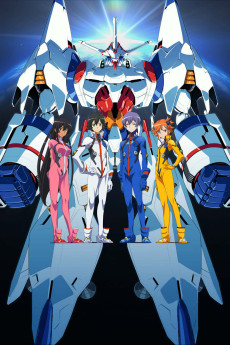 ANIME MechaCaptain Earth
ANIME MechaCaptain Earth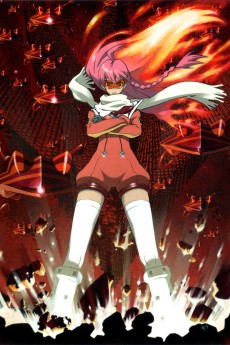 OVA ActionTop wo Nerae 2! DIEBUSTER
OVA ActionTop wo Nerae 2! DIEBUSTER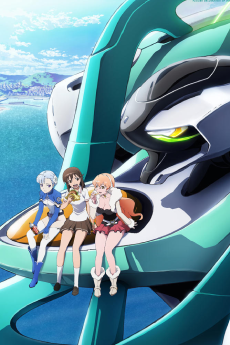 ANIME ActionRinne no Lagrange
ANIME ActionRinne no Lagrange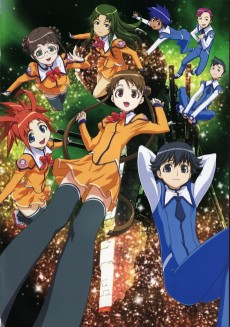 ANIME ActionUchuu no Stellvia
ANIME ActionUchuu no Stellvia
SCORE
- (3.45/5)
TRAILER
MORE INFO
Ended inJune 25, 2025
Main Studio Studio Khara
Trending Level 8
Favorited by 663 Users
Hashtag #GQUUUUUUX #ジークアクス




